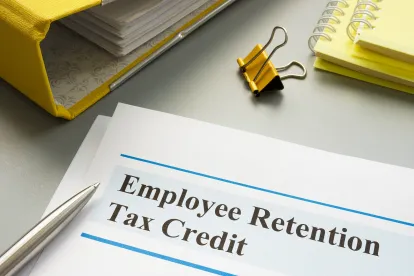On Oct. 19, 2022, the IRS issued a warning to employers about what it calls “third parties” who promote claiming large employment tax refunds from improperly claiming the Employee Retention Credit (ERC). The ERC was established to provide a refundable employment tax credit to help small to mid-sized businesses impacted during the second through fourth quarters of 2020 and the first three quarters of 2021 by the COVID epidemic to keep their staff employed. The credit for 2020 was 50% of qualified wages paid (up to a maximum credit of $5,000 per employee for all of 2020) and for the applicable 2021 quarters, 70% of qualified wages paid (up to a maximum credit of $7,000 per employee per quarter). The IRS issued the warning to advise businesses that some of these third parties are advising the filing of amended payroll tax returns for the 2020 and 2021 tax quarters to claim the ERC even though the businesses do not qualify for the credit. As explained below, in order to properly claim the credit, among other requirements, a business must establish that it either had a significant decline in gross receipts for the quarter or had its business operations fully or partially suspended due to a COVID-related governmental order.
Qualifying for the ERC – Gross Receipts Test
The gross receipts test is a purely mechanical test. For 2020, the significant decline in gross receipts test is satisfied if the business had a greater than 50% decline in gross receipts for the 2nd, 3rd, or 4th quarters of 2020 compared with comparable quarters in 2019. For 2021, the significant decline in gross receipts is satisfied for the 1st, 2nd, or 3rd quarters if the business had a greater than 20% decline in gross receipts compared to comparable quarters in 2019. The gross receipts of related companies must be aggregated in this calculation. Additional rules apply if the business was acquired or sold after 2019. If the business satisfies the gross receipts test, and other requirements, it would be eligible to claim the credit (if it had not already done so) by filing amended quarterly payroll tax returns – Form 941X – for the quarters in question.
Qualifying for the ERC – Governmental Order Test
If the business does not satisfy the significant decline in gross receipts test, it would have to rely on the governmental order test to qualify for the ERC. Under this test, the business must be able to demonstrate that a COVID-related governmental order had fully or partially suspended business operations. This test may have been easy to satisfy during the early days of the pandemic, when many businesses were locked down by governmental order, but as COVID-related restrictions eased, this test became more difficult to satisfy. The IRS issued its warning because some consultants are improperly advising that governmental orders which required social distancing in the workplace are all that is necessary to support an ERC claim. A governmental order which allows a business to operate in a manner comparable to its operations before the order is not sufficient to support the claim.
Some third parties are also advising that general supply chain disruptions affecting a business could satisfy this requirement. However, the business must be able to demonstrate that its critical suppliers’ operations were suspended by a COVID-related governmental order to be able to claim the credit. Furthermore, a governmental order which affects a critical supplier must be an order from either the U.S. government, or a state or local governmental authority. The order of a foreign government which affects the operations of a foreign supplier do not satisfy the conditions for claiming the credit.
In its release, the IRS also warned of third parties who prepare amended returns that either overstate the ERC computations or improperly determine eligibility. The third parties require a large upfront fee from the employer or a percentage of the ERC tax refund obtained by the employer. The IRS also noted that these third parties may fail to notify businesses of the impact of the ERC on its income tax returns. Any business that files an amended employment tax return must reduce the wage deductions claimed on the businesses’ federal income tax return by the amount of the claimed ERC.
A taxpayer should consult with its own tax professional concerning whether it can or did properly claim the ERC. If the business improperly claimed the ERC, it should seek advice as to how to rectify the situation and would be required to repay the credit with interest and possibly penalties.


 />i
/>i

